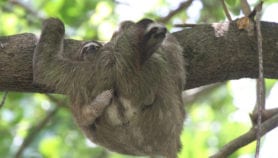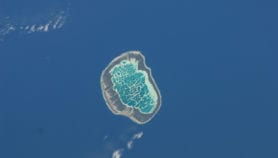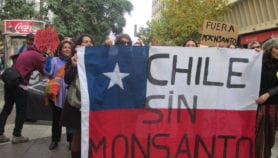By: Luisa Massarani
Send to a friend
The details you provide on this page will not be used to send unsolicited email, and will not be sold to a 3rd party. See privacy policy.
[RIO DE JANEIRO] A number of Brazilian universities and research institutions continue to support wildlife trafficking and the illegal export of genetic material and data, despite laws and regulations intended to stop this practice, according to a report by a Brazilian parliamentary commission.
The report, which was commissioned to investigate several accusations of biopiracy, says that Brazil’s legal and institutional systems are inadequate to control biopiracy. It also proposes that the government should create new legislation on the export of wild animals and genetic material, stating that “even when [current] co-operation agreements are legal, the benefits to Brazil are in several cases insignificant and, thus, unacceptable”.
The report calls for better integration between policies designed to combat biopiracy and other policies tailored to areas such as science and technology, industry and commerce and agriculture.
It also calls for a reorganisation of responsibilities at both the federal and local level in order to clarify which bodies are responsible for monitoring biopiracy and implementing policy.
There is a need for increased vigilance in ports and airports, in partnership with Brazil’s neighbouring countries, the report says. It also recommends the creation of a programme of environmental education to combat biopiracy.
The trafficking of wild animals is the third largest illicit activity in the world, following the trafficking of weapons and drugs. In Brazil alone, trafficking of wild animals involves about US$1 billion a year.
According to Marcus Barros, director of Brazil’s environment agency Ibama, the main organisation responsible for controlling biopiracy in the country, there are insufficient resources to control illegal trafficking. “About 5,700 officials and 1,300 environmental analysts work on controlling biopiracy,” he says. “We need about twice that number”.
Ibama is unable to deal with the large number of applications for authorisation to collect and export wildlife made by scientific institutions, he says. Furthermore, if Ibama fails to respond to an application within 60 days, the law states that this is a provisional positive answer. Barros says that some individuals are using this loophole in the law to collect wild animals and plants.
Local people are also implicated in biopiracy, he says, because some communities illegally collect wild animals both for their own use and for sale. “In some Brazilian areas, very poor people collect animals and plants for their survival”, he says. “We need to offer people an alternative activity. But it isn’t very easy to persuade them to substitute their activity for another, less lucrative one.”
The report, which was released at the end of January, was based on 100 statements from leading stakeholders submitted to the parliamentary commission as part of its investigations.
Source: SciDev.Net
Link to report of parliamentary commission on biopiracy (in Portuguese)
Related external link:
Ibama
More on Bioprospecting
News
Combining cassava species could lead to better crops
[SAO PAULO] Combining tissues from different cassava species may lead to a new method for improving t ...16/10/12
News
Biodiversity data gaps ‘need bridging’ to meet global targets
[HYDERABAD] Global biodiversit ...11/10/12
News
Meeting puts socioeconomic impact on biosafety agenda
[HYDERABAD] An international treaty meeting on biosafety has recommended to include the socioeconomic ...09/10/12
Feature
Guide and glossary to CBD
The Convention on Biological Diversity (CBD) has spawned a series of agreements and technical ...07/10/12








